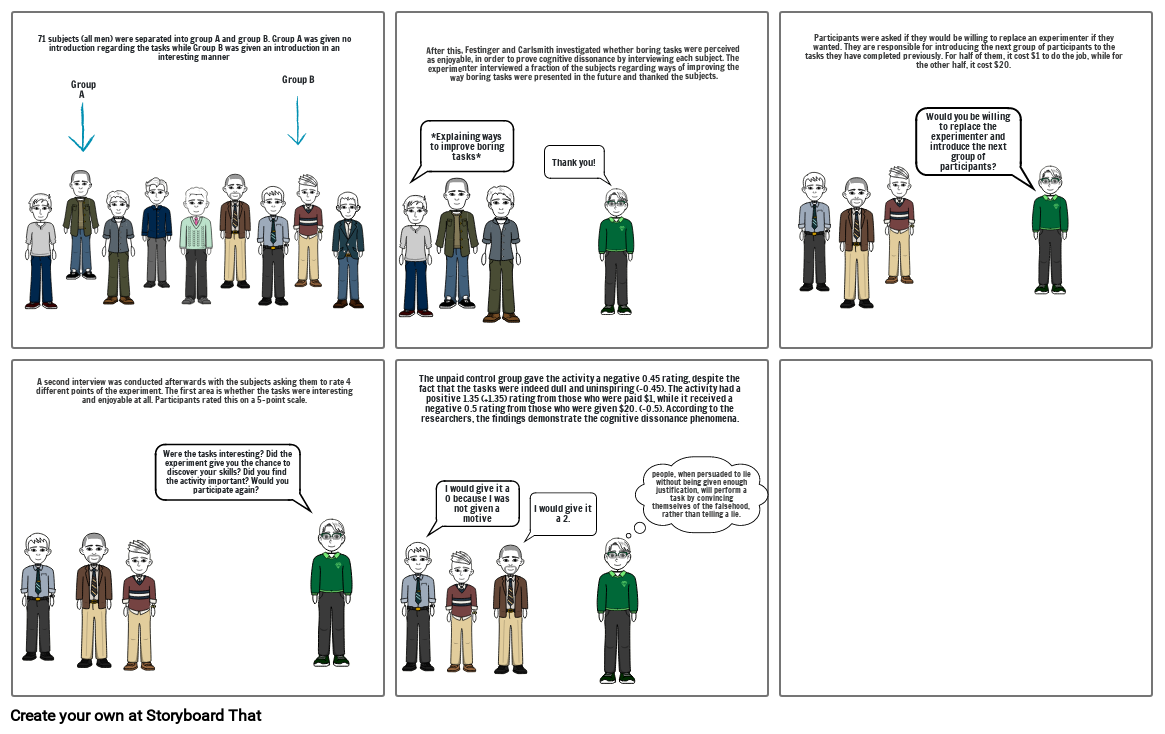Cognitive Dissonance

Storyboard Text
- 71 subjects (all men) were separated into group A and group B. Group A was given no introduction regarding the tasks while Group B was given an introduction in an interesting manner 
- A second interview was conducted afterwards with the subjects asking them to rate 4 different points of the experiment. The first area is whether the tasks were interesting and enjoyable at all. Participants rated this on a 5-point scale.
- Group A 
- Group B
- *Explaining ways to improve boring tasks*
- After this, Festinger and Carlsmith investigated whether boring tasks were perceived as enjoyable, in order to prove cognitive dissonance by interviewing each subject. The experimenter interviewed a fraction of the subjects regarding ways of improving the way boring tasks were presented in the future and thanked the subjects.
- Thank you!
- Participants were asked if they would be willing to replace an experimenter if they wanted. They are responsible for introducing the next group of participants to the tasks they have completed previously. For half of them, it cost $1 to do the job, while for the other half, it cost $20.
- Would you be willing to replace the experimenter and introduce the next group of participants?
- Were the tasks interesting? Did the experiment give you the chance to discover your skills? Did you find the activity important? Would you participate again? 
- The unpaid control group gave the activity a negative 0.45 rating, despite the fact that the tasks were indeed dull and uninspiring (-0.45). The activity had a positive 1.35 (+1.35) rating from those who were paid $1, while it received a negative 0.5 rating from those who were given $20. (-0.5). According to the researchers, the findings demonstrate the cognitive dissonance phenomena.
- I would give it a 0 because I was not given a motive
- I would give it a 2.
- people, when persuaded to lie without being given enough justification, will perform a task by convincing themselves of the falsehood, rather than telling a lie.
Over 30 Million Storyboards Created
No Downloads, No Credit Card, and No Login Needed to Try!
